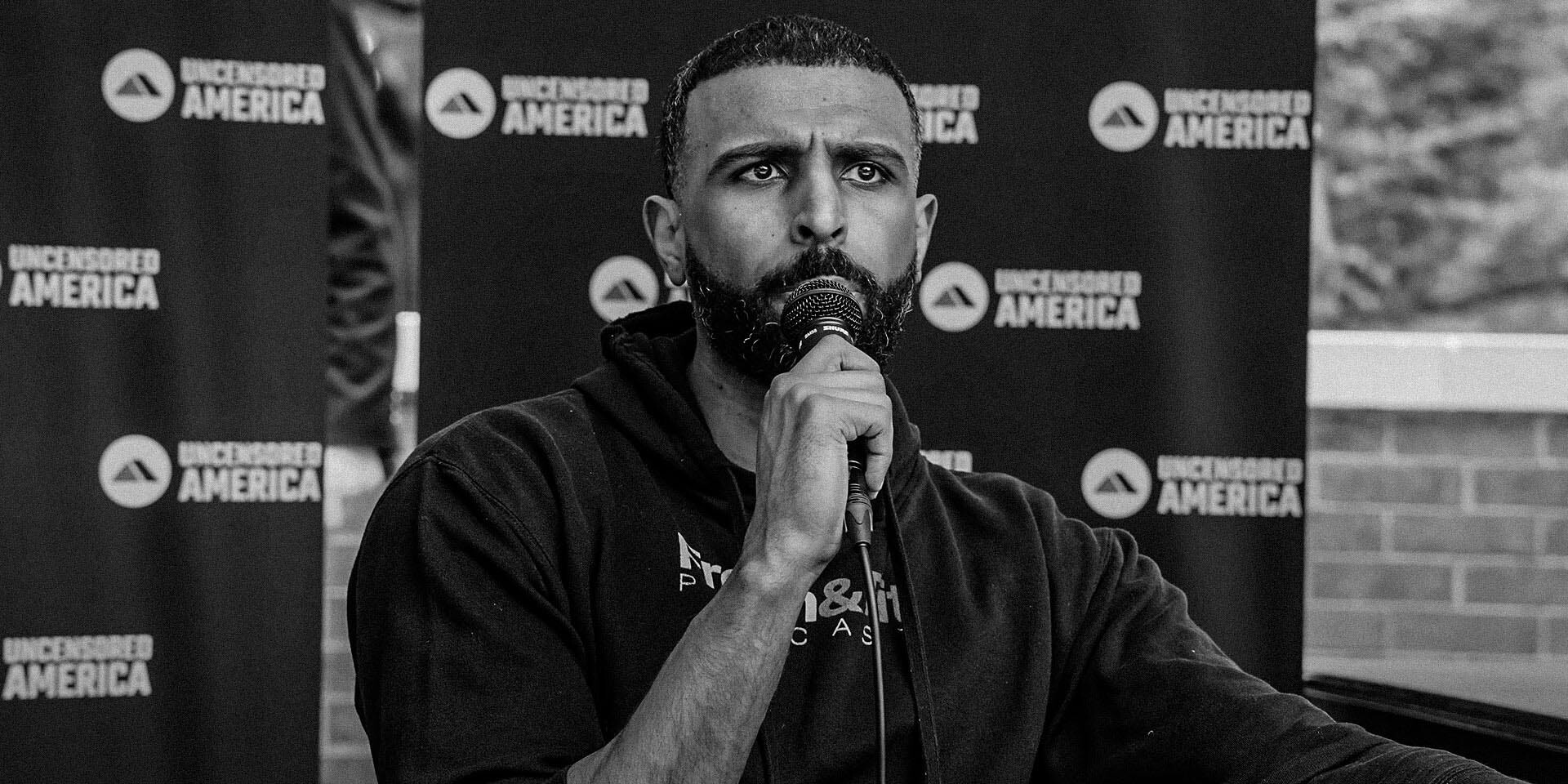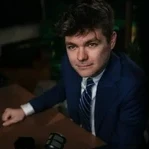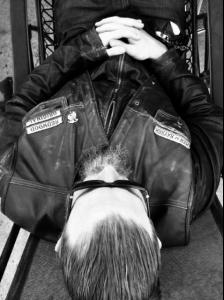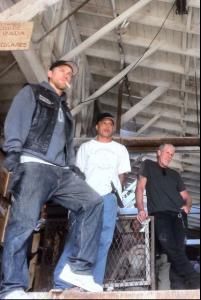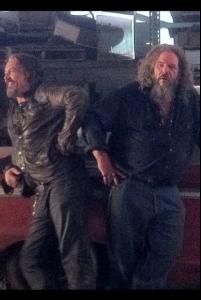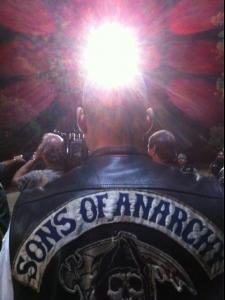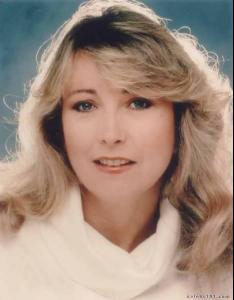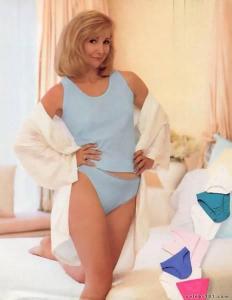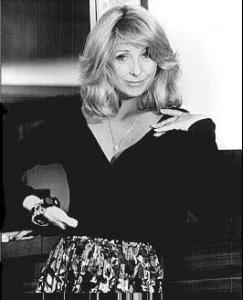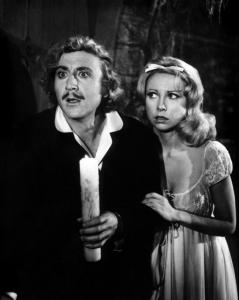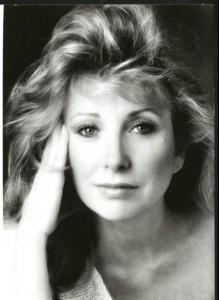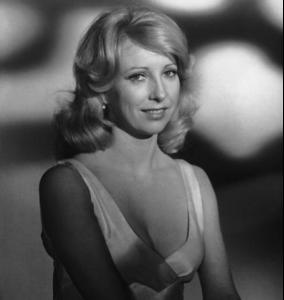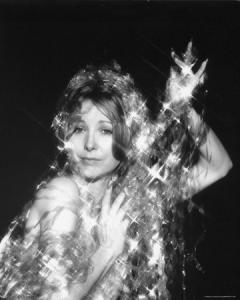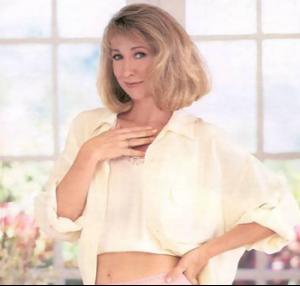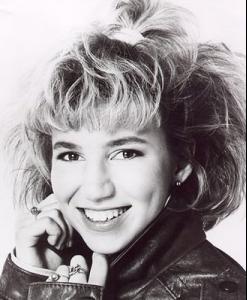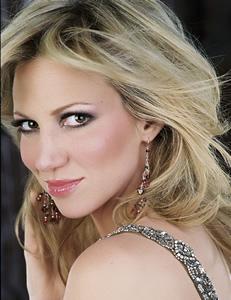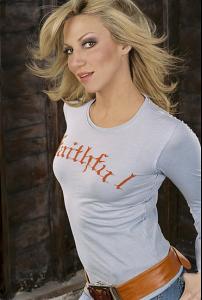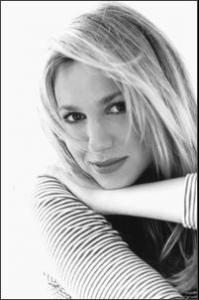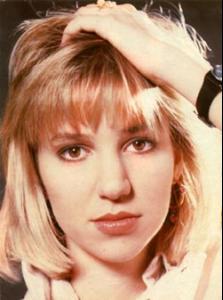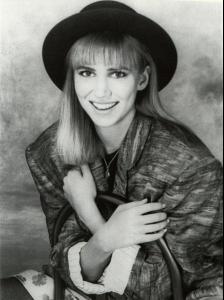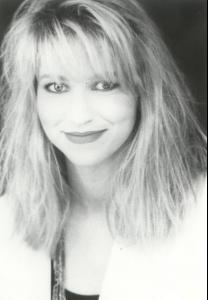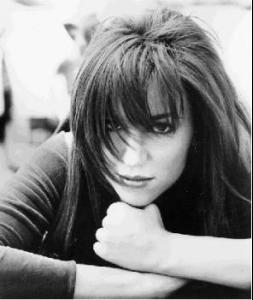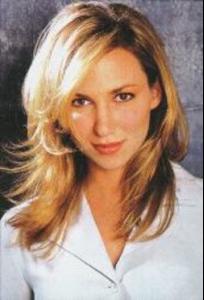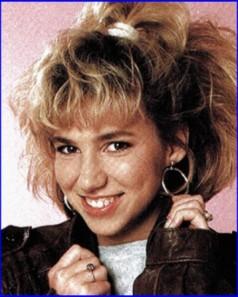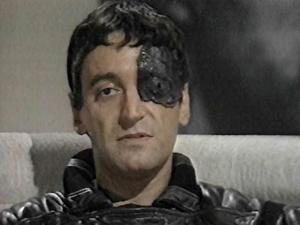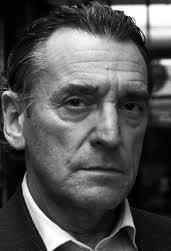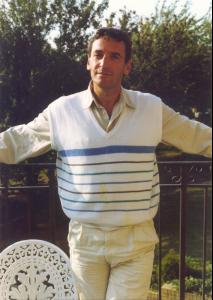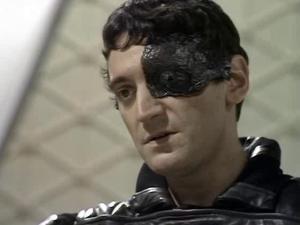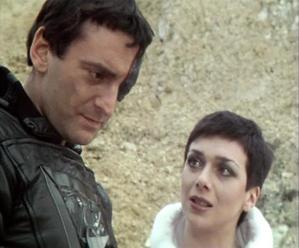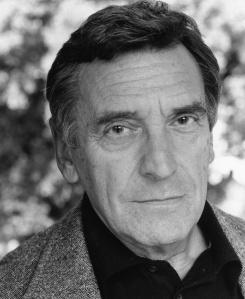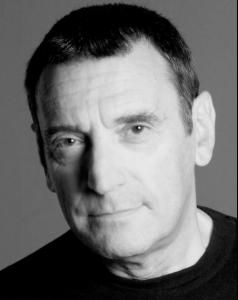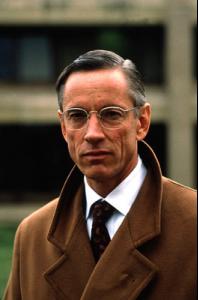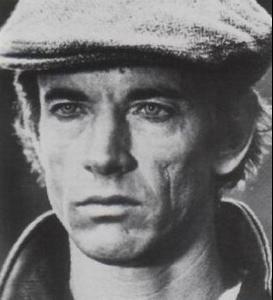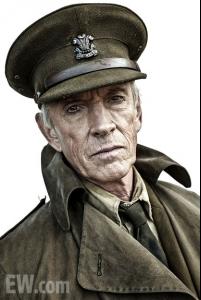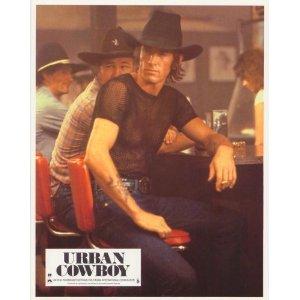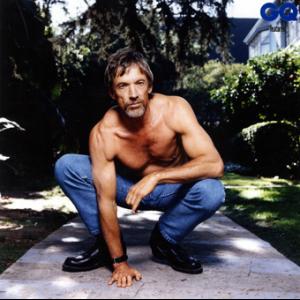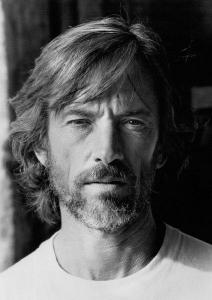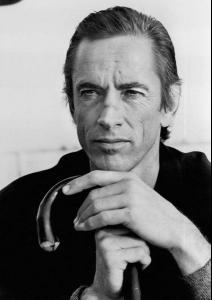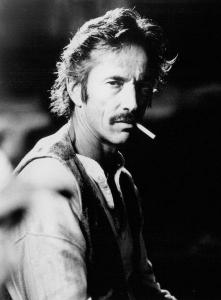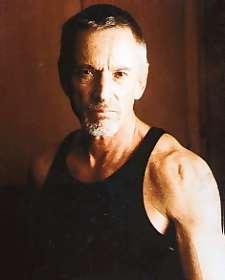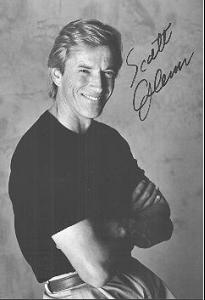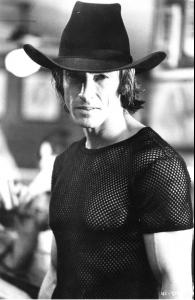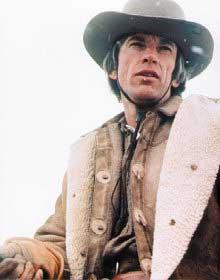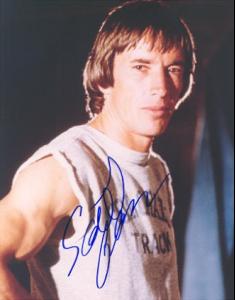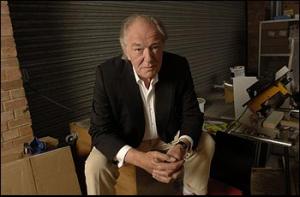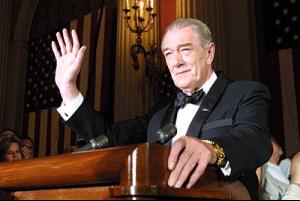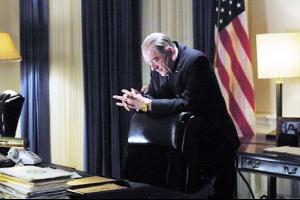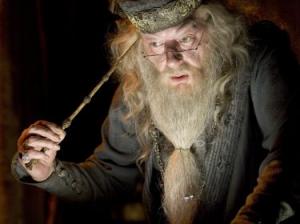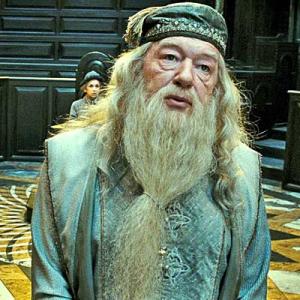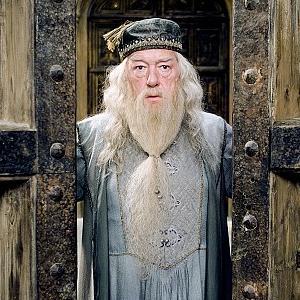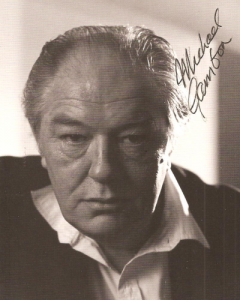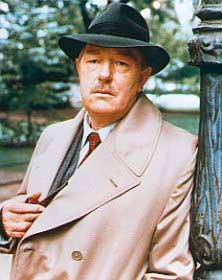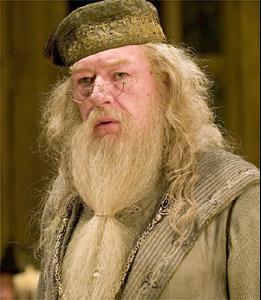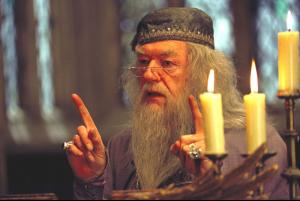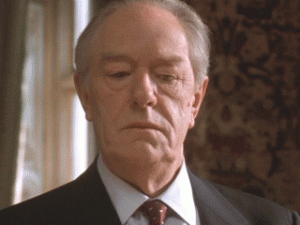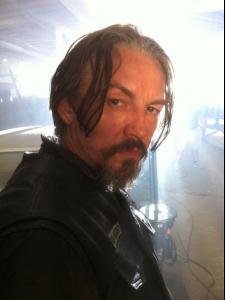Sir Michael John Gambon, CBE (born 19 October 1940) is an Irish-born British actor who has worked in theatre, television and film. A highly respected theatre actor, Gambon is recognised for his roles as Philip Marlowe in the BBC television serial The Singing Detective, as Jules Maigret in the 1990s ITV serial Maigret, and as Professor Albus Dumbledore in the last six Harry Potter films, replacing the late actor Richard Harris.
Early life
Gambon was born in Cabra, Dublin, during World War II. His father, Edward Gambon, was an engineer, and his mother, Mary was a seamstress. His father decided to seek work in the rebuilding of London, and so the family moved to Mornington Crescent in North London, when Gambon was five. His father had him made a British citizen, a decision that would later allow Gambon to receive an actual, rather than honorary, knighthood and CBE.
Brought up as a strict Roman Catholic, he attended St Aloysius Boys' School in Somers Town and served at the altar. He then moved to St Aloysius' College in Hornsey Lane, Highgate, London, whose former pupils include Peter Sellers and Joe Cole. He later attended a school in Kent, before leaving with no qualifications at fifteen. He then gained an apprenticeship with Vickers Armstrong as a toolmaker. By the time he was 21, he was a fully qualified engineer. He kept the job for a further year, acquiring a fascination and passion for collecting antique guns, clocks, watches, and classic cars.
Career
Early work
At the age of 18, Gambon went off to attend drama school at the Royal Academy of Dramatic Art (RADA) in London and studied classical acting for 3 years, eventually receiving a BA in Classical Acting. Gambon built a very solid CV whilst at RADA consisting of the works of William Shakespeare, Anton Chekhov and many others. Aged 19, while at RADA, he joined the Unity Theatre in King's Cross. Five years later he wrote a letter to Michael MacLiammoir, the Irish theatre impresario who ran Dublin's Gate Theatre. It was accompanied by a CV describing a rich and wholly imaginary theatre career – and he was taken on.
Gambon made his professional stage début in the Gate Theatre Dublin's 1962 production of Othello, playing "Second Gentleman", followed by a European tour. A year later, cheekily auditioning with the opening soliloquy from Richard III, he caught the eye of star-maker Laurence Olivier who was recruiting promising spear carriers for his new National Theatre Company. Gambon, along with Robert Stephens, Derek Jacobi and Frank Finlay, was hired as one of the "to be renowned" and played any number of small roles, appearing on cast lists as Mike Gambon. The company initially performed at the Old Vic, their first production being Hamlet, directed by Olivier and starring Peter O'Toole. Gambon played for four years in many NT productions, including named roles in The Recruiting Officer and The Royal Hunt of the Sun, working with directors William Gaskill and John Dexter.
Theatre
After three years at the Old Vic, Olivier advised Gambon to gain experience in provincial rep. In 1967, he left the NT for the Birmingham Repertory Company, which was to give him his first crack at the title roles in Othello (his favourite), Macbeth and Coriolanus.
His rise to stardom began in 1974 when Eric Thompson cast him as the melancholy vet in Alan Ayckbourn's The Norman Conquests at Greenwich. A speedy transfer to the West End established him as a brilliant comic actor, squatting at a crowded dining table on a tiny chair and sublimely agonising over a choice between black or white coffee.
Back at the National, now on the South Bank, his next turning point was Peter Hall's premiere staging of Harold Pinter's Betrayal, an unexpectedly subtle performance – a production photograph shows him embracing Penelope Wilton with sensitive hands and long slim fingers (the touch of a master clock-maker).
He is also one of the few actors to have mastered the harsh demands of the vast Olivier Theatre. As Simon Callow once said: "Gambon's iron lungs and overwhelming charisma are able to command a sort of operatic full-throatedness which triumphs over hard walls and long distances".
This was to serve him in good stead in John Dexter's masterly staging of The Life of Galileo in 1980, the first Brecht to become a popular success. Hall called him "unsentimental, dangerous and immensely powerful", even The Sunday Times' curmudgeonly critic of the day called his performance "a decisive step in the direction of great tragedy... great acting", while fellow actors paid him the rare compliment of applauding him in the dressing room on the first night.
From the first Ralph Richardson dubbed him The Great Gambon, an accolade which stuck, outshining his 1990 CBE, even the later knighthood, although Gambon dismisses it as a circus slogan. But as Sheridan Morley perceptively remarked in 2000, when reviewing Cressida: "Gambon's eccentricity on stage now begins to rival that of his great mentor Richardson". Also like Richardson, interviews are rarely given and raise more questions than they answer. Gambon is a very private person, a "non-starry star" as Ayckbourn called him. Off-stage he prefers to back out of the limelight, an unpretentious guy sharing laughs with his fellow cast and crew. While he has won screen acclaim, no-one who saw his ravaged King Lear at Stratford, while still in his early forties, will forget his superb double act with a red-nosed Antony Sher as the Fool sitting on his master's knee like a ventriloquist's doll.
There were also notable appearances in Old Times at the Haymarket Theatre and Volpone and the brutal sergeant in Pinter's Mountain Language. David Hare's Skylight, with Lia Williams, which opened to rave reviews at the National in 1995, transferred first to Wyndham's Theatre and then on to Broadway for a four-month run which left him in a state of advanced exhaustion. "Skylight was ten times as hard to play as anything I've ever done" he told Michael Owen in the Evening Standard. "I had a great time in New York, but wanted to return".
Gambon is almost the only leading actor not to grace Yasmina Reza's ART at Wyndham's. But together with Simon Russell Beale and Alan Bates he gave a deliciously droll radio account of the role of Marc. And for the RSC he shared Reza's two-hander The Unexpected Man with Eileen Atkins, first at The Pit in the Barbican and then at the Duchess Theatre, a production also intended for New York but finally delayed by other commitments.
In 2001 he played what he described as "a physically repulsive" Davies in Patrick Marber's revival of Pinter's The Caretaker, but he found the rehearsal period an unhappy experience, and felt that he had let down the author. A year later, playing opposite Daniel Craig, he portrayed the father of a series of cloned sons in Caryl Churchill's A Number at the Royal Court, notable for a recumbent moment when he smoked a cigarette, the brightly lit spiral of smoke rising against a black backdrop, an effect which he dreamed up during rehearsals.
In 2004, Gambon played the lead role (Hamm) in Samuel Beckett's post-apocalyptic play Endgame at the Albery Theatre, London. In 2004 he finally achieved a life-long ambition to play Falstaff, in Nicholas Hytner's National production of Henry IV, Parts 1 and 2, co-starring with Matthew Macfadyen as Prince Hal.
Films and television
He made his film debut in the Laurence Olivier Othello in 1965. He then played romantic leads, notably in the early 1970s BBC television series, The Borderers, in which he was swashbuckling Gavin Ker. As a result, Gambon was asked by James Bond producer Cubby Broccoli to audition for the role in 1970, to replace George Lazenby. His craggy looks soon made him into a character actor, although he won critical acclaim as Galileo in John Dexter's production of The Life of Galileo by Brecht at the National Theatre in 1980. But it was not until Dennis Potter's The Singing Detective (1986) that he became a household name. After this success, for which he won a BAFTA, his work includes such controversial films as The Cook, The Thief, His Wife and Her Lover, which also starred Helen Mirren.
In 1992 he played a psychotic general in the Barry Levinson film Toys and he also starred as Georges Simenon's detective Inspector Jules Maigret in an ITV adaptation of Simenon's series of books. He starred as Fyodor Dostoyevsky in the Hungarian director Károly Makk's movie The Gambler (1997) about the writing of Dostoyevsky's novella The Gambler. In recent years, films such as Dancing at Lughnasa (1998), Plunkett & Macleane (1998), and Sleepy Hollow (1999), as well as television appearances in series such as Wives and Daughters (1999) (for which he won another BAFTA), a made-for-TV adaptation of Samuel Beckett's Endgame (2001) and Perfect Strangers (2001) have revealed a talent for comedy. Gambon played President Lyndon B. Johnson in the television film Path to War. For this performance, he was nominated for an Emmy Award for Best Actor in a Mini-series or Movie and a Golden Globe Award for Best Actor in a Miniseries or Motion Picture made for Television.
In 2004, he appeared in five films, including Wes Anderson's quirky comedy The Life Aquatic with Steve Zissou; the British gangster flick Layer Cake; theatrical drama Being Julia; and CGI action fantasy Sky Captain and the World of Tomorrow.
In 2004, he was Albus Dumbledore, Hogwarts's headmaster in the third instalment of J. K. Rowling's franchise, Harry Potter and the Prisoner of Azkaban, taking over from the late Richard Harris. (Harris had also played Maigret on television four years before Gambon took that role.) Gambon reprised the role of Dumbledore in Harry Potter and the Goblet of Fire, which was released in November 2005 in the United Kingdom and the United States. He returned to the role again in the fifth film, 2007's Harry Potter and the Order of the Phoenix, and the sixth film, Harry Potter and the Half-Blood Prince. He appeared in the seventh film; Harry Potter and the Deathly Hallows Parts I and II, released in two parts in 2010 and 2011. Despite having deliberately misled an interviewer (something Gambon enjoys doing often, to mix things up a bit), he hasn't read the books, as evidenced in the Prisoner of Azkaban interviews. Similarly, he has also misled another interviewer to believe that, when playing Dumbledore, he does not "have to play anyone really. I just stick on a beard and play me, so it's no great feat. I never ease into a role—every part I play is just a variant of my own personality. I'm not really a character actor at all..."
Ongoing work
He performed as Joe in Beckett's Eh Joe, giving two performances a night at the Duke of York's Theatre in London. He currently does the voice over to the new Guinness ads with the penguins. In 2007 he played major roles in Stephen Poliakoff's Joe's Palace, and the five-part adaptation of Mrs Gaskell's Cranford novels, both for BBC TV.
In 2008 Gambon appeared in the role of Hirst in No Man's Land by Harold Pinter in the Gate Theatre, Dublin, opposite David Bradley as Spooner, in a production directed by Rupert Goold, which transferred to the London West End's Duke of York's Theatre, for which roles each received nominations for the 2009 Laurence Olivier Award for Best Actor. He also appeared as the Narrator in the British version of Kröd Mändoon and the Flaming Sword of Fire.
After Pinter's death on 24 December 2008, Gambon read Hirst's monologue selected by the playwright for Gambon to read at his funeral, held on 31 December 2008, during the cast's memorial remarks from the stage as well as at the funeral and also in Words and Music, transmitted on the BBC Radio 3 on 22 February 2009.
In late 2009 he had to withdraw from his role of W. H. Auden in The Habit of Art (being replaced by Richard Griffiths) because of ill health. That same year he played his role as Mr. Woodhouse in a television adaptation of Jane Austen's famously irrepressible Emma, a four-hour miniseries that premiered on BBC One in October 2009, co-starring Jonny Lee Miller and Romola Garai. Gambon received a 2010 Primetime Emmy Award for Outstanding Supporting Actor in a Miniseries or a Movie nomination for his performance.
In April 2010, Gambon returned once again to the Gate Theatre Dublin to appear in Samuel Beckett's Krapp's Last Tape, which transferred to London's Duchess Theatre in October 2010.
Gambon appeared alongside Katherine Jenkins in the 2010 Christmas Special of Doctor Who, A Christmas Carol.
Personal life
Gambon married Anne Miller when he was 22, but has always been secretive about his personal life, responding to one interviewer's question about her: "What wife?" The couple lived near Gravesend, Kent, where she has a workshop. Gambon was invested by Prince Charles as a Knight Bachelor on 17 July 1998 for "services to drama". (Queen Elizabeth II's approval for the award was notified in the 1998 New Year Honours List.) Anne Miller thus became Lady Gambon. The couple were later separated and estranged. They have one son, Fergus, an expert on the BBC's Antiques Roadshow.
While filming Gosford Park, Gambon brought Philippa Hart on to the set and introduced her to co-stars as his girlfriend. When the affair was revealed in 2002, he moved out of the marital home and bought a bachelor pad. Hart, who worked with Gambon on the film, Sylvia in 2003, in late 2006 moved into a £500,000 terraced home in Chiswick, west London. In February 2007, it was revealed that Hart was pregnant with Gambon's child, and gave birth to son, Michael, in May 2007. On 22 June 2009 she gave birth to her second child, a boy named William, who is Gambon's third child.
Gambon is a qualified private pilot and his love of cars led to his appearance on the BBC's Top Gear programme. Gambon raced the Suzuki Liana and was driving so aggressively that it went round the last corner of his timed lap on two wheels. The final corner of the Dunsfold Park track has been named "Gambon" in his honour.
He appeared on the programme again on 4 June 2006, and set a time in the Chevrolet Lacetti of 1:50.3, a significant improvement on his previous time of 1:55. He clipped his namesake corner the second time, and when asked why by Jeremy Clarkson, replied, "I dunno – I just don't like it."
Work
Theatre
Othello (Second Gentleman), Gate Theatre, Dublin, professional debut 1962, followed by a European tour
Hamlet, National Theatre at the Old Vic, 1963
Saint Joan, National/Old Vic, 1963
The Recruiting Officer (Coster Permain), National/Old Vic, 1963
Andorra, National/Old Vic, 1964
Philoctetes, National/Old Vic, 1964
Othello, National/Old Vic, 1964
The Royal Hunt of the Sun (Diego), Chichester Festival and National/Old Vic, 1964
The Crucible (Herrick), National/Old Vic, 1965
Mother Courage and Her Children (Eilif), National/Old Vic, 1965
Love for Love (Snap), National/Old Vic, 1965, also tour to Russia and Germany
Juno and the Paycock (Jerry Devine), National/Old Vic, 1966
The Storm, National/Old Vic, 1966
Events While Guarding the Bofors Gun by John McGrath (Flynn), Birmingham Rep, 1967
A Severed Head (Palmer Anderson), Birmingham Rep, 1967
The Doctor's Dilemma (Patric Cullen), Birmingham Rep, 1967
Saint Joan (Cauchon), Birmingham Rep, 1967
Peer Gynt (The Button Moulder), Birmingham Rep, 1968
Othello (title role), Birmingham Rep, 1968
Macbeth, The Forum Theatre, Billingham, 1968
In Celebration (Andrew), Liverpool Playhouse, 1969
Coriolanus (title role), Liverpool Playhouse, 1969
The Plebeians Rehearse the Uprising (Wiebe), RSC Aldwych Theatre, 1970
Major Barbara (Charles Lomax), RSC Aldwych Theatre, 1970
Henry VIII (Surrey), RSC Aldwych Theatre, 1971
When Thou Art King (Hotspur), RSC Roundhouse, 1971
The Brass Hat (Guy Holden), Yvonne Arnaud Theatre, Guildford, 1972
Not Drowning But Waving by Leonard Webb (Robin), Greenwich Theatre, 1973
The Norman Conquests trilogy (Tom), Greenwich Theatre, 1974
The Norman Conquests (Tom), Globe Theatre, London 1975
The Zoo Story (Gerry), Open Air Theatre, Regent's Park lunchtime production, 1975
Otherwise Engaged (Simon), Queen's Theatre, 1976 (replacing Alan Bates)
Just Between Ourselves (Neil), Queen's Theatre, 1977
Alice's Boys by Felicity Browne and Jonathan Hales (Bertie), Savoy Theatre, London, 1978
Betrayal (Jerry), National Theatre, 1978
Close of Play (Henry), National Lyttelton Theatre, 1979
Richard III (taking over as Buckingham), National, 1980
Othello (Roderigo), National, 1980
Sisterly Feelings (Patrick), National, 1980
The Life of Galileo (title role), National Olivier Theatre, 1980
King Lear (title role) RSC Stratford,1982; Barbican Theatre, 1983
Antony and Cleopatra (Antony), RSC Stratford, 1982; Barbican, 1983
Tales from Hollywood (Ödön von Horváth), National, 1983
Old Times (Deeley), Theatre Royal Haymarket, 1985
A Chorus of Disapproval (Dafyd ap Llewellyn), National Olivier, 1985
Tons of Money (Sprules), National Lyttelton, 1986
A View from the Bridge (Eddie Carbone), National Cottesloe Theatre, 1987
A Small Family Business (Jack McCracken), National Olivier, 1987
Mountain Language (Sergeant), National Lyttelton, 1988
Uncle Vanya (title role), Vaudeville Theatre, 1988
Veterans' Day (Walter Kercelik), Theatre Royal Haymarket, 1989
Man of the Moment (Douglas Beechey), Globe Theatre, London, 1990
Othello (title role), Stephen Joseph Theatre, Scarborough, 1991
Taking Steps, Stephen Joseph, Scarborough, 1981
Volpone (title role), National Olivier, 1995
Skylight (Tom Sergeant), National Cottesloe, 1995
Skylight (Tom Sergeant), Broadway, 1996
Tom and Clem (Tom Driberg), Aldwych Theatre, 1997
The Unexpected Man (The Man), RSC The Pit, Barbican, 1998
Juno and the Paycock (Captain Jack Boyle), Gaiety Theatre, 1999
Cressida (John Shank), The Almeida Theatre at the Albery, 2000
The Caretaker (Davies), Comedy Theatre, 2001
A Number (The Father), Royal Court Theatre, 2002
Endgame (Hamm), Albery Theatre, 2004
Henry IV, Part 1 and Henry IV, Part 2 (Sir John Falstaff), National Olivier, 2005
Celebration Pinter staged reading (Lambert), Gate Theatre, Dublin/Albery, 2005
Eh Joe (Joe), Gate Theatre, transfer to Duke of York's Theatre, 2006
No Man's Land (Hirst), Gate Theatre, transfer to Duke of York's Theatre 2008/09
Krapp's Last Tape (Krapp), Gate Theatre, transfer to Duchess Theatre, 2010
Filmography
1965 Othello Company Film debut
1973 Nothing But the Night Inspector Grant
1974 The Beast Must Die Jan Jarmokowski
1985 Turtle Diary George Fairbairn
1988 Paris by Night Gerald Paige
Missing Link Narrator (voice)
1989 The Rachel Papers Doctor Knowd
A Dry White Season Magistrate
The Cook, The Thief, His Wife & Her Lover Albert Spica
1991 Mobsters Salvatore Maranzano
1992 Toys General Leland Zevo
1994 A Man of No Importance Ivor J. Garney
Clean Slate Philip Cornell
Squanto: A Warrior's Tale Sir George
The Browning Version Dr. Frobisher
1995 Bullet to Beijing Alex
Two Deaths Daniel Pavenic
Nothing Personal Leonard
1996 Mary Reilly Mr. Reilly
The Innocent Sleep Det. Insp. Matheson
Midnight in Saint Petersburg Alex
1997 The Gambler Fyoder Dostoyevsky
The Wings of the Dove Lionel Croy
1998 Dancing at Lughnasa Father Jack Mundy
Plunkett & Macleane Lord Gibson
1999 Le Château des singes Master Martin (voice in English version: A Monkey's Tale)
Dead on Time Maurice
The Insider Thomas Sandefur
The Last September Sir Richard Naylor
Sleepy Hollow Baltus Van Tassel
2001 Gosford Park Sir William McCordle
Charlotte Gray Levade
High Heels and Low Lifes Kerrigan
Christmas Carol: The Movie Ghost of Christmas Present (voice)
2002 Ali G Indahouse Prime Minister
2003 Little Wolf's Book of Badness Uncle Bigbad (voice)
The Actors Barreller
Open Range Denton Baxter
Sylvia Professor Thomas
Deep Blue Narrator Documentary (voice)
2004 Harry Potter and the Prisoner of Azkaban Albus Dumbledore
Standing Room Only Larry
Being Julia Jimmie Langton
Sky Captain and the World of Tomorrow Morris Paley
Layer Cake Eddie Temple
The Life Aquatic with Steve Zissou Oseary Drakoulias
2005 Stories of Lost Souls Larry (segment "Standing Room Only")
Harry Potter and the Goblet of Fire Albus Dumbledore
2006 The Omen Bugenhagen
The Good Shepherd Dr. Fredericks
John Duffy's Brother Narrator (voice)
Amazing Grace Lord Charles Fox
2007 The Good Night Alan Weigert
The Baker Leo
The Alps Narrator Documentary (voice)
Harry Potter and the Order of the Phoenix Albus Dumbledore
2008 Brideshead Revisited Lord Marchmain
2009 Harry Potter and the Half-Blood Prince Albus Dumbledore
Fantastic Mr. Fox Franklin Bean (voice)
2010 The Book of Eli George
Harry Potter and the Deathly Hallows – Part 1 Albus Dumbledore
The King's Speech King George V
2011 Harry Potter and the Deathly Hallows – Part 2 Albus Dumbledore
Page Eight Benedict Baron
Television
Year Title Role Notes
1967 Much Ado About Nothing Watchman No.4 TV film
1968 Public Eye Unknown Episode 3.4: "Have Mud, Will Throw"
1969 Fraud Squad Rex Lucien Episode 1.3: "Last Exit to Leichstenstein"
1968–1970 The Borderers Gavin Ker Appeared in 26 episodes: Episodes of The Borderers
1970 Confession Mr. Tennent Episode 1.4: "People Who Visit Glass Houses"
1971 Eyeless in Gaza Mark Staithes Episode 1.1: "O Dark, Dark, Dark, Amid the Blaze of Noon"
Episode 1.2: "With Inward Eyes Illuminated"
Episode 1.5: "And Calm of Mind, All Passion Spent"
1972 The Challengers John Killane Episode 1.1: "The Tomorrow Business"
The Man Outside Ralph Kenward Episode 1.6: "Cuculus Canorus"
1967–1972 Softly, Softly Cranley Episode 2.21: "Appointment in Wyvern"
Episode 8.11: "Welcome to the Club"
1973 Menace Ellis Episode 2.1: "Judas Goat"
A Picture of Katherine Mansfield Harry Episode #1.5
Special Branch Muller Episode 3.12: "Hostage"
Arthur of the Britons Roland Episode 2.3: "The Prisoner"
Six Days of Justice Mr.Golding Episode 3.2: "Stranger in Paradise"
ITV Saturday Night Theatre Brother Kevin Episode 6.9: "Catholics"
Great Mystery Major Rolfe Episode 1.16: "An Affair of Honour"
1974 Zodiac Reuben Keiser Episode 1.2: "The Cool Aquarian"
Masquerade Stewart Episode 1.2: "May We Come In?"
1976 Centre Play Edith Harrison Episode 3.9: "In the Labyrinth"
1972–1976 Play for Today Various characters Episode 2.17: "Cows"
Episode 6.11: "The Other Woman"
Episode 6.21: "Tiptoe Through the Tulips"
1977 ITV Sunday Night Drama Various characters Episode 1.11: "Now Is Too Late"
Episode 2.15: "The Man Who Liked Elephants"
1967–1978 Play of the Month Various characters Episode 3.3: "Romeo and Juliet"
Episode 4.3: "The Seagull"
Episode 7.1: "A Midsummer Night's Dream"
Episode 11.8: "French Without Tears"
Episode 13.4: "The Seagull"
1978 Premiere Kenny Episode 2.5: "One of These Nights I'm Gonna Get an Early Day"
1977–1979 The Other One Brian Bryant Appeared in 13 episodes
1979 Chalk and Cheese Unknown Unknown episodes
1980 Tales of the Unexpected Andrew Episode 2.11: "The Umbrella Man"
1982 ITV Playhouse Unknown Episode 14.4: "The Breadwinner"
La ronde Unknown TV film
1985 Absurd Person Singular Geoffrey Jackson TV film
Oscar Oscar Wilde TV mini-series
Episode 1.1: "Gilded Youth"
Episode 1.2: "Trials"
Episode 1.3: "De Profundis"
Tropical Moon Over Dorking Bill TV film
1986 The Singing Detective Philip Marlow TV serial
Episode 1.1: "Skin"
Episode 1.2: "Heat"
Episode 1.3: "Lovely Days"
Episode 1.4: "Clues"
Episode 1.5: "Pitter Patter"
Episode 1.6: "Who Done It".
1987 Bergerac Jarvis McLeod Episode 5.2: "Winner Takes All"
Night Theatre: Ghosts Pastor Manders TV serial
1989 The Heat of the Day Harrison TV film
Monster Maker Ultragorgon TV serial (voice)
About Face Trevor Episode 1.1: "Searching for Señor Duende"
1990 Blood Royal: William the Conqueror William I TV film
1991 The Storyteller The Storyteller Appeared in 4 episodes: Episodes of The Storyteller
Minder Tommy Hanbury Episode 8.5: "Guess Who's Coming to Pinner?"
1992–1993 Maigret Insp. Maigret Appeared in 12 episodes: Episodes of Maigret
1993 Performance Archie Rice Episode 1.1: "The Entertainer"
1994 Faith Peter John Moreton TV film
1995 The Wind in the Willows Badger TV film (voice)
1996 Expert Witness Himself Presenter/Narrator
Samson and Delilah King Hanun TV mini-series
The Willows in Winter Badger TV film (voice)
1999 Wives and Daughters Squire Hamley TV mini-series
2000 Longitude John Harrison TV film
Endgame Hamm TV film adaptation of the play by Samuel Beckett
2001 Perfect Strangers Raymond TV film
2002 Path to War Lyndon B. Johnson TV mini-series
2003 The Lost Prince Edward VII TV mini-series
Angels in America Prior Walter Ancestor TV mini-series
Episode 1.2: "Millennium Approaches: Chapter Two – In Vitro"
Episode 1.3: "Millennium Approaches: Chapter Three – The Messenger"
2006 Celebration Lambert TV film adaptation of the play by Harold Pinter
2007 Joe's Palace Elliot Graham TV film
Cranford Mr. Holbrook TV mini-series
Episode 1.2: "August 1842"
Episode 1.3: "November 1842 "
2009 Kröd Mändoon and the Flaming Sword of Fire The Narrator Episode 1.1: "Wench Trouble" (voice)
Emma Mr. Woodhouse Appeared in 4 episodes: Episodes of Emma
2010 Doctor Who Kazran/Elliot Sardick 2010 Christmas Special: "A Christmas Carol"[16]
2011 Luck Michael
Video games
Ghosthunter (2003) – Lord William Hawksmoor
